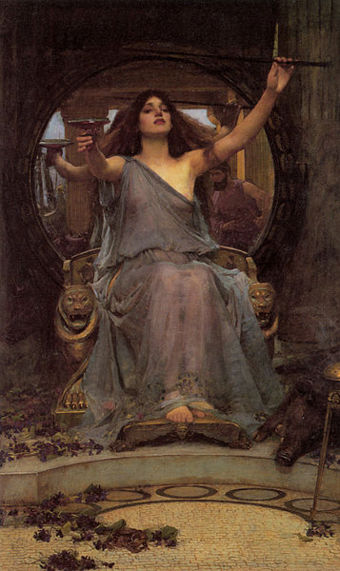Odyssey
The Odyssey is an epic poem believed to have been written by the Greek poet Homer probably around the seventh century BCE. It is an important work in the literature of Western civilization, and sequel to the Iliad, which describes the sea-faring adventures of the hero Odysseus in his ten-year struggle to return home to Ithaca and rejoin his wife Penelope. Odysseus was a Greek warrior in the Trojan War whose clever strategy of the Trojan War meant victory for the warring Greek armies led by Agamemnon and doom for the Trojans. But bad Greek behavior during the sack of Troy caused the Greeks to fall out of favor with the gods and goddesses from Mount Olympus, and they made homecomings difficult for most of the Greek warriors.
The Odyssey was a vital narrative, initially sung by poets perhaps accompanied by a lyre, and was written in a metric style called dactylic hexameter characterized by a tension between the spoken sounds of the words, their respective meanings, and rhythm, for the purpose of heightening the effect and impact of the poem. It highlights the shrewd and steadfast character of Odysseus as a cunning master of strategy who must use his wits on repeated occasions to survive and return home. The word odyssey has become synonymous with a long adventure travel, sometimes by sea. Odysseus had many adventures on different islands and places along the Mediterranean Sea, and had to contend with forces both human and divine. In the story, he returns home to find that a crowd of suitors has moved into his house to court his wife Penelope, since his disappearance after twenty years (ten during the Trojan war, and ten returning home) led most to suspect that Odysseus was dead. He kills the suitors, rejoins his son Telemachus.
The 'Odyssey helped define for the ancient Greeks the important parts of their civilization, clarified beliefs in their religion concerning their gods and goddesses, and also served as entertainment and a way to share common beliefs. It was an educational tool as well. The epic has had substantial impact on later poetry throughout Western civilization and influenced later writers such as the Roman Virgil who wrote the Aeneid based largely on the combined works of the Iliad and Odyssey. The Odyssey has been translated repeatedly throughout history and has been the subject of much literary criticism and speculation, and it serves as a historical reference for scholars of history.
